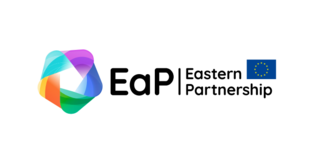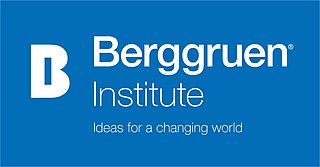
The International Monetary Fund (IMF) is a major financial agency of the United Nations, and an international financial institution, headquartered in Washington, D.C., consisting of 190 countries. Its stated mission is "working to foster global monetary cooperation, secure financial stability, facilitate international trade, promote high employment and sustainable economic growth, and reduce poverty around the world." Formed in 1944, started on December 27, 1945, at the Bretton Woods Conference, primarily by the ideas of Harry Dexter White and John Maynard Keynes, it came into formal existence in 1945 with 29 member countries and the goal of reconstructing the international monetary system. It now plays a central role in the management of balance of payments difficulties and international financial crises. Countries contribute funds to a pool through a quota system, from which countries experiencing balance of payments problems can borrow money. As of 2016, the fund had SDR 477 billion. The IMF is regarded as the global lender of last resort.

The United Nations Economic and Social Council is one of the six principal organs of the United Nations, responsible for coordinating the economic and social fields of the organization, specifically in regards to the fifteen specialised agencies, the eight functional commissions, and the five regional commissions under its jurisdiction.

A think tank, or policy institute, is a research institute that performs research and advocacy concerning topics such as social policy, political strategy, economics, military, technology, and culture. Most think tanks are non-governmental organizations, but some are semi-autonomous agencies within government or are associated with particular political parties, businesses or the military. Think-tanks are often funded by individual donations, with many also accepting government grants.

The European Bank for Reconstruction and Development (EBRD) is an international financial institution founded in 1991. As a multilateral developmental investment bank, the EBRD uses investment as a tool to build market economies. Initially focused on the countries of the former Eastern Bloc it expanded to support development in more than 30 countries from Central Europe to Central Asia. Similar to other multilateral development banks, the EBRD has members from all over the world, with the biggest single shareholder being the United States, but only lends regionally in its countries of operations. Headquartered in London, the EBRD is owned by 71 countries and two European Union institutions, the newest shareholder being Algeria since October 2021. Despite its public sector shareholders, it invests in private enterprises, together with commercial partners.

The Brookings Institution, often stylized as Brookings, is an American think tank that conducts research and education in the social sciences, primarily in economics, metropolitan policy, governance, foreign policy, global economy, and economic development.
Open Society Foundations (OSF), formerly the Open Society Institute, is a grantmaking network founded and chaired by business magnate George Soros. Open Society Foundations financially supports civil society groups around the world, with the stated aim of advancing justice, education, public health and independent media. The group's name was inspired by Karl Popper's 1945 book The Open Society and Its Enemies.
Governance is the process of making and enforcing decisions within an organization or society. It is the process of interactions through the laws, social norms, power or language as structured in communication of an organized society over a social system. It is done by the government of a state, by a market, or by a network. It is the process of choosing the right course among the actors involved in a collective problem that leads to the creation, reinforcement, or reproduction of acceptable conduct and social order". In lay terms, it could be described as the political processes that exist in and between formal institutions.

Steve H. Hanke is a professor of applied economics at the Johns Hopkins University in Baltimore, Maryland. He is also a senior fellow at the Independent Institute in Oakland, California, and co-director of the Johns Hopkins University's Institute for Applied Economics, Global Health, and the Study of Business Enterprise in Baltimore, Maryland.

Kamer Daron Acemoğlu is a Turkish-born American economist who has taught at the Massachusetts Institute of Technology (MIT) since 1993. He is currently the Elizabeth and James Killian Professor of Economics at MIT. He was named Institute Professor in 2019.

George Soros is a Hungarian-American businessman and philanthropist. As of March 2021, he had a net worth of US$8.6 billion, having donated more than $32 billion to the Open Society Foundations, of which $15 billion has already been distributed, representing 64% of his original fortune. Forbes called Soros the "most generous giver". He is a resident of New York.

Per Anders Åslund is a Swedish economist and former Senior Fellow at the Atlantic Council. He is also a chairman of the International Advisory Council at the Center for Social and Economic Research (CASE).

Simeon Dyankov is a Bulgarian economist. From 2009 to 2013, he was the deputy prime minister and minister of finance of Bulgaria in the government of Boyko Borisov. He has been a vocal supporter of Bulgaria's entry into the Eurozone. Before his cabinet appointment, he was the chief economist of the finance and private sector vice-presidency of the World Bank.

Israel Democracy Institute, established in 1991, is an independent center of research and action dedicated to strengthening the foundations of Israeli democracy. It is located in Jerusalem, Israel.

Nicolas Berggruen is a US-based billionaire investor and philanthropist. Born in Paris, France, he is a dual German and American citizen. He is the founder and president of Berggruen Holdings, a private investment company and the co-founder and chairman of the Berggruen Institute, a non-profit, non-partisan think tank that works to address global governance issues. In 2014, through the Institute, Berggruen launched Noema Magazine, formerly the WorldPost, a digital and print publication dedicated to exploring global issues.

The Eastern Partnership (EaP) is a joint initiative of the European External Action Service of the European Union (EU) together with the EU, its member states, and six Eastern European partners governing the EU's relationship with the post-Soviet states of Armenia, Azerbaijan, Belarus, Georgia, Moldova, and Ukraine. The EaP is intended to provide a forum for discussions regarding trade, economic strategy, travel agreements, and other issues between the EU and its Eastern European neighbours. It also aims at building a common area of shared values of democracy, prosperity, stability, and increased cooperation. The project was initiated by Poland and a subsequent proposal was prepared in co-operation with Sweden. It was presented by the foreign ministers of Poland and Sweden at the EU's General Affairs and External Relations Council in Brussels on 26 May 2008. The Eastern Partnership was inaugurated by the European Union in Prague, Czech Republic on 7 May 2009.

Norman L. Eisen is an American attorney, author, and former diplomat. He is a senior fellow in governance studies at the Brookings Institution, a CNN legal analyst, and the co-founder and executive chair of the States United Democracy Center. He was co-counsel for the House Judiciary Committee during the first impeachment and trial of President Donald Trump in 2020. He served as White House Special Counsel for Ethics and Government Reform, United States Ambassador to the Czech Republic, and board chair of Citizens for Responsibility and Ethics in Washington (CREW). He is the author of four books, including The Last Palace: Europe's Turbulent Century in Five Lives and One Legendary House (2018). In 2022, he co-authored Overcoming Trumpery: How to Restore Ethics, the Rule of Law, and Democracy.
State capture is a type of systemic political corruption in which private interests significantly influence a state's decision-making processes to their own advantage.

The Berggruen Institute is a Los Angeles-based think tank founded by Nicolas Berggruen.
Conservative democracy is a label coined by the ruling Justice and Development Party (AKP) of Turkey to describe Islamic democracy. Forming as a modernist breakaway party from former Islamist movements, the AKP's conservative democratic ideology has been described as a departure from or moderation of Islamic democracy and the endorsement of more secular and democratic values. The electoral success and the neo-Ottoman foreign policy of the AKP that aims to broaden Turkey's regional influence has led to the party's conservative democratic ideals to be mirrored in other countries, such as by the Justice and Development Party in Morocco and the Ennahda Movement in Tunisia.

Heather Grabbe is a European political scientist and activist. She is the director of the Open Society European Policy Institute in Brussels, Belgium, since 2009. Since 2021, she is Visiting Professor at University College London and at Katholieke Universiteit Leuven.















